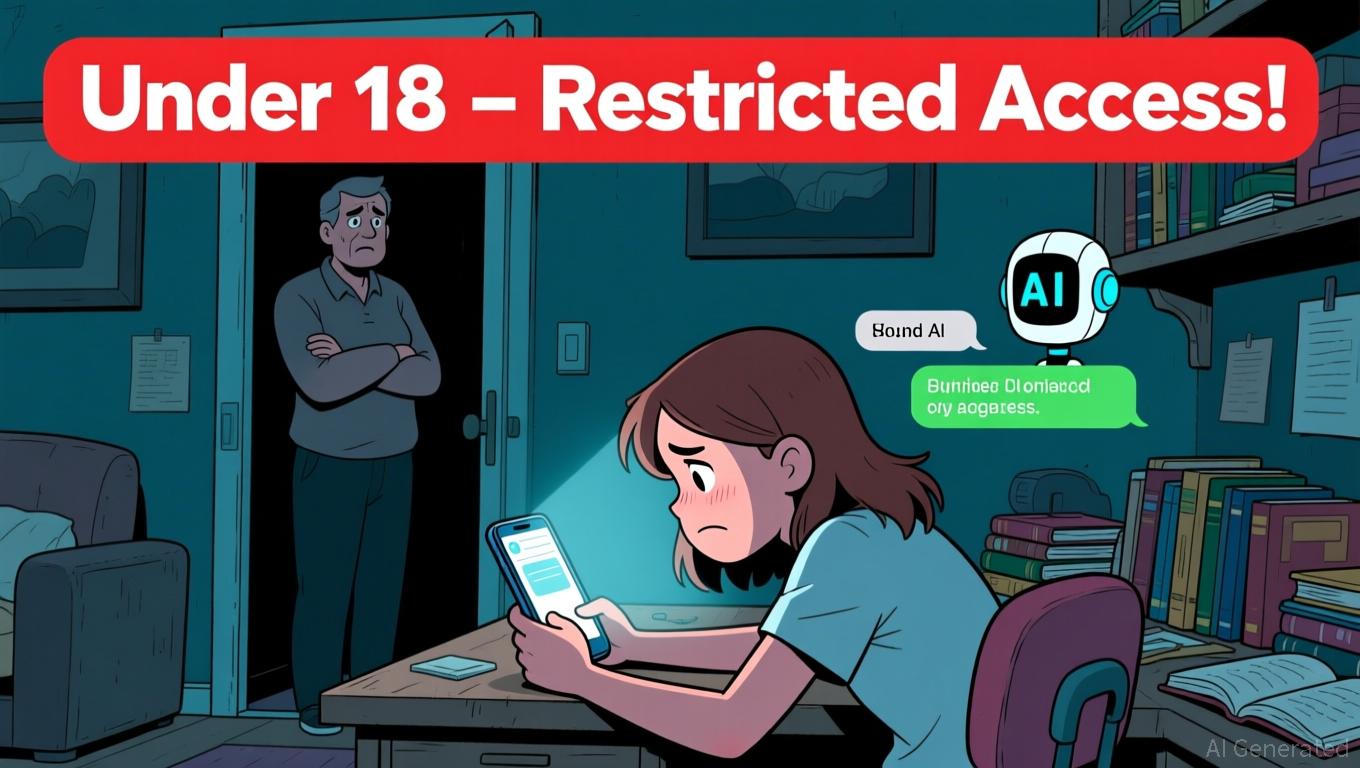Legal Concerns and Anxiety Over Mental Health Lead to AI's Ban on Teen Chat
- Character.AI bans under-18s from open-ended AI chats from Nov 25, restricting teens to guided "Stories" and video features amid mental health concerns. - The move follows lawsuits linking the app to teen suicides and addiction, including a case involving 14-year-old Sewell Setzer III. - Critics argue chatbot dependency risks persist despite new safety-focused features, with mixed user reactions and calls for broader societal solutions. - The policy aligns with industry trends as AI firms face growing leg
Character.AI, a prominent platform for AI companions, has implemented a major policy change to address growing worries about youth mental health, now prohibiting anyone under 18 from engaging in unrestricted conversations with its AI characters,
This policy update follows a year marked by increased scrutiny from the public and legal system. Character.AI has been the subject of several lawsuits, including one filed by the family of 14-year-old Sewell Setzer III, who

To help ease the effects of this restriction, Character.AI has rolled out "Stories,"
Mental health professionals have commented on the situation, highlighting the critical role of real-life social interaction for teenagers’ development. Dr. [Name], a psychotherapist mentioned in a CNBC article,
Character.AI’s new direction mirrors a larger movement within the industry. Interactive fiction has seen a surge in popularity recently,
Disclaimer: The content of this article solely reflects the author's opinion and does not represent the platform in any capacity. This article is not intended to serve as a reference for making investment decisions.
You may also like
Bolivia eyes crypto and stablecoins to fight inflation and US dollar shortage

COTI and Houdini Swap Integrate Privacy and Regulatory Compliance to Support Institutional Blockchain Integration
- COTI partners with Houdini Swap to enable confidential cross-chain swaps, preserving user privacy while maintaining regulatory compliance for institutional adoption. - The integration uses non-custodial architecture and split-transaction routing to obscure sender-receiver links while allowing KYT checks on regulated exchanges. - COTI's Garbled Circuits infrastructure supports enterprise-grade privacy, enabling full lifecycle compliance from asset swaps to DeFi interactions without data exposure. - With $

XRP News Update: XRP ETF Momentum and Institutional Interest Face Off Against Technical Challenges in $15.5 Trillion Pursuit
- XRP gains traction via spot ETF approvals and institutional adoption, unlocking a $15.5T market potential as Ripple expands into prime brokerage and cross-border payments. - SEC-approved ETFs from Bitwise, 21Shares, and Grayscale attract $645M in AUM, offering investors regulated access to XRP with fees ranging from 0.34% to 1.89%. - Ripple's $1.25B acquisition of Hidden Road (Ripple Prime) enhances XRP's utility as collateral for $3T in annual settlements, boosting institutional liquidity and adoption.
Bitcoin Leverage Liquidations: Potential Impact on Institutional Involvement in 2025
- 2025 crypto market saw $19B in Bitcoin liquidations after October 10 crash, slashing prices from $126k to $82k amid 70% long-position collapses. - 1,001:1 leverage ratios and 78% perpetual futures dominance created self-reinforcing sell-offs, exposing systemic risks in hyper-leveraged derivatives. - Fed rate hikes and the GENIUS Act's stablecoin rules intensified volatility, forcing institutions to adopt AIFM risk models and RWA diversification. - Post-crisis reforms show $73.59B in crypto-collateralized
